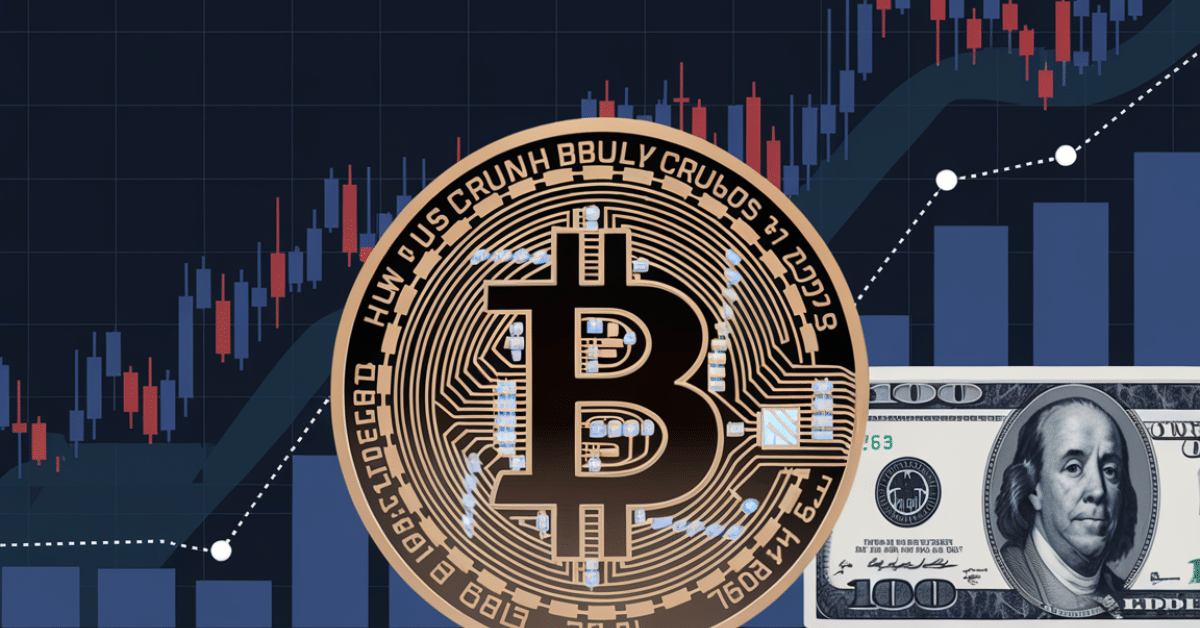Key Takeaways
- To buy crypto in India, choose secure exchanges like WazirX or CoinDCX, complete KYC, and deposit funds using UPI or bank transfers.
- Selling involves placing market or limit orders on your exchange and withdrawing INR via IMPS, NEFT, or RTGS.
- Indian regulations impose a 30% tax on crypto profits, 1% TDS on transactions over ₹50,000, and strict KYC/AML compliance requirements.
India’s cryptocurrency market has seen significant growth despite regulatory uncertainties. The Supreme Court lifted the Reserve Bank of India’s (RBI) ban on cryptocurrency trading in 2020, but challenges remain due to taxation, platform restrictions, and government policies. This guide will walk you through buying, selling, and managing cryptocurrency in India, along with the factors to consider and how to stay compliant with regulations.
How to Buy Cryptocurrency in India?
Choose a Reliable Cryptocurrency Exchange
Select an established exchange that supports transactions in Indian Rupees (INR). Popular platforms include WazirX, CoinDCX, and Binance. In India, you should opt for a trading platform that offers low trading fees, supports payment methods like UPI, bank transfers, and IMPS, and has robust security features.
Complete the KYC Process
Every Indian exchange requires users to undergo KYC (Know Your Customer) verification. This process typically includes:
- Submission of Identity Proof: Usually, a government-issued ID like an Aadhar card, driver’s license, or passport is required.
- Proof of Address: You can provide bank statements or utility bills with your current address.
- Photograph: A recent passport-sized photo may be needed.
Completing KYC can take anywhere from a few minutes to several days. Therefore, it’s advisable to initiate this process early to avoid delays when you’re ready to sell. Try to complete it during non-peak times to further avoid delays.
Deposit Funds
Once the account is confirmed, you can deposit funds into your account by using these methods:
- Bank Transfer: NEFT, RTGS, and IMPS options can be used for fund transfers.
- UPI: Some exchanges accept UPI payments, which can be instant. These are also preferred by most Indians.
- Third-party Wallets: Some exchanges allow linking Paytm or similar wallets.
- Cash Deposit: A few platforms might support cash deposits via partner outlets.
Remember that due to banking restrictions, some exchanges might face delays in processing UPI transactions.
Deposit Process: Follow these steps:
- Go to the “Funds” section of your exchange account.
- Select the deposit option and choose a method preferred payment method.
- Input the required amount you wish to deposit and follow the instructions provided.
Buy Cryptocurrency
- Select the cryptocurrency you wish to buy (e.g., Bitcoin, Ethereum, or Dogecoin). You’ll generally see two options:
Market Order: Instantly buy at the current market price.
Limit Order: Set a specific price and wait for the market to match it.
- Enter Information: Enter the amount of cryptocurrency you want to buy and review the order details before confirming.
- Confirm Purchase: Once you’re satisfied with your order, click the “Buy” button.
Store Your Crypto Securely
After buying, it’s advisable that you transfer your cryptocurrency to a safe wallet. Here are the two options available:
- Hot Wallets: Suitable for frequent traders.
- Cold Wallets: These are best for long-term investors; they are offline wallets like Ledger or Trezor.
Keep Track of Crypto Transactions
Maintaining records of your transactions is essential for future reference and tax compliance. Exchanges provide a transaction history feature. Download or take screenshots of your transaction records.
Be aware that, in India, profits from cryptocurrency transactions are subject to tax. Prepare to file your income tax returns, including the necessary details of your crypto transactions.
How to Sell Cryptocurrency in India
Transfer Crypto to the Exchange
If your cryptocurrency is stored in an external wallet, transfer it to the exchange where you wish to sell. Double-check the wallet address to avoid losses.
Place a Sell Order
Similar to buying, you can place a:
- Market Order: Sell instantly at the current market rate.
- Limit Order: Set a target price and sell when the market hits it.
Withdraw INR
Once the sale is complete, withdraw your funds to your bank account. Most exchanges allow withdrawals through:
- IMPS/NEFT/RTGS: Withdrawal fees can vary between ₹10–₹50.
Popular Crypto Exchanges in India
1. WazirX
Founded: 2018
User Base: Over 16 million users.
Supported Cryptocurrencies: 350+ cryptocurrencies available for trading.
Transaction Fees: Fees range from 0.1% to 0.4% based on 30-day trading volume and WRX holdings. Crypto deposits are free; withdrawal fees vary depending on the coin.
Security Features: WazirX employs industry-standard protocols, including 2FA (Two-Factor Authentication), regular security audits, and a bug bounty program. Most assets are kept in cold storage.
2. CoinDCX
Founded: April 7, 2018
User Base: Over 10 million users.
Supported Cryptocurrencies: Over 250 cryptocurrencies.
Transaction Fees: Trading fees range from 0.04% to 0.5%, depending on trading volume. Users can experience zero fees for certain transactions.
Security Features: CoinDCX stores 95% of funds in multi-sig cold wallets and provides 2FA and withdrawal confirmations for account security. The platform is backed by reputable investors. It also offers insurance for assets held in cold storage.
3. ZebPay
Founded: 2014
User Base: Approximately 5 million users.
Supported cryptocurrencies: 100+ cryptocurrencies.
Transaction Fees: No fees for crypto-to-crypto quick trades; a 0.5% fee applies for crypto-to-fiat trades. Other fees may vary based on the nature of transactions.
Security Features: ZebPay maintains over 98% of its cryptocurrency assets in cold storage and offers OTP and 2FA for user accounts. The exchange has been involved in initiatives that promote transparency and compliance with regulations.
4. Bitbns
Founded: December 2017
User Base: Over 4 million users.
Supported Cryptocurrencies: Over 400 cryptocurrencies available.
Transaction Fees: Typically between 0.03% and 0.25%, with discounts applicable for BNS token holders.
Security Features: Bitbns implements 2FA authentication and offers robust security.
5. Mudrex
Founded: Operational since at least the early 2020s.
User Base: Not specified, but offers a user-friendly platform catering to a wide audience.
Supported Cryptocurrencies: 150+ cryptocurrencies available for trading.
Transaction Fees: Charges a 0.2% fee on every transaction.
Security Features: All funds are insured by Lloyds of London, and Mudrex utilizes encrypted secure storage to protect users’ assets. The platform is fully compliant with Indian and European regulations.
6. CoinSwitch
Founded: 2017
User Base: Over 10 million downloads.
Supported Cryptocurrencies: More than 400 cryptocurrencies.
Transaction Fees: Fees depend on the exchange being used within the platform; CoinSwitch does not charge specific fees for their service.
Security Features: CoinSwitch is a non-custodial exchange, meaning users hold their keys. It has implemented 2FA and has a robust security framework in place.
7. Binance India
Founded: Binance was founded in 2017, and operations in India are ongoing.
User Base: Not specifically stated for India, but part of the global Binance user base exceeding 28 million.
Supported Cryptocurrencies: 500+ different cryptocurrencies.
Transaction Fees: Binance utilizes a tiered fee structure that can drop to 0% for specific BTC trading pairs based on volume.
Security Features: Employs 2FA, offline cold storage for the majority of its assets, and real-time monitoring of transactions for security.
How to Choose a Cryptocurrency Exchange in India?
When selecting a cryptocurrency exchange in India, it is essential to evaluate the key metrics to consider below:
Security Features
Security is paramount when dealing with cryptocurrencies, given the risks of hacks and fraud. Consider the following aspects:
- Two-Factor Authentication (2FA): It provides an additional security layer during logins and transactions.
- A significant portion of assets should be stored offline to reduce the likelihood of thefts and breaches.
- Look for exchanges that conduct regular security audits and assessments.
- Some exchanges offer insurance coverage against breaches.
User Interface and Experience
- The platform should be intuitive for trading and accessing features easily.
- A mobile app enhances accessibility and convenience.
- Active support channels like live chat can help resolve issues promptly.
Range of Supported Cryptocurrencies
The number of cryptocurrencies available on the exchange can influence your investment choices:
- Diversity of Coins: Check if the exchange supports a wide range of cryptocurrencies, including less popular altcoins.
- New Listings: Consider exchanges that regularly update their list of supported cryptocurrencies to include new and trending digital assets.
Transaction Fees
Trading Fees: Look for clear fee structures, typically ranging from 0.1% to 0.5%.
Liquidity
Assess average daily trading volume; higher volumes indicate better liquidity for quicker transactions.
Payment Methods
Review accepted payment methods, such as bank transfers and UPI, aligning with your preferences.
Community and Reputation
The exchange’s reputation reflects its reliability:
- User Reviews: Check feedback across platforms for insights into user satisfaction.
- History of Breaches: Research the exchange’s past regarding security issues that could pose risks.
Regulations and Taxation in India
India’s cryptocurrency market operates under evolving regulations. Here’s what you need to know:
Taxation:
- A 30% tax is levied on profits from crypto trading.
- A 1% TDS (Tax Deducted at Source) is applied on all transactions above ₹50,000 in a financial year.
- Losses from crypto trading cannot be set off against other income.
Regulatory Framework:
- Cryptocurrencies are legal for trading, but the RBI has urged caution due to volatility.
- Regular updates from the Ministry of Finance should be monitored for compliance.
Use tools like CoinTracker to keep track of your trades and calculate taxes accurately.
Conclusion
You can conveniently buy and sell cryptocurrencies in India if you opt for an appropriate exchange, have a good understanding of the purchasing and selling operations, and are aware of your tax duties. Always remember that security should be your top priority, and never forget to be aware of the volatility of the market. Because of the rapid pace at which the cryptocurrency landscape is changing, keeping up will enable you to make well-informed judgments throughout your trading experience.























